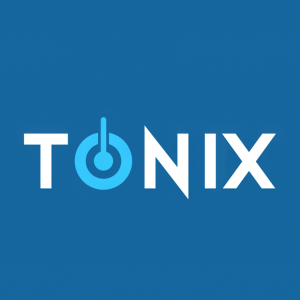Tonix Pharmaceuticals Plans to Initiate Prader-Willi Syndrome Phase 2 Trial of TNX-2900 (Intranasal Potentiated Oxytocin) in 2026
Rhea-AI Summary
Tonix Pharmaceuticals (NASDAQ:TNXP) has announced plans to initiate a Phase 2 clinical trial for TNX-2900, its intranasal potentiated oxytocin treatment for Prader-Willi Syndrome (PWS), in 2026. The trial will evaluate the drug in children and adolescents aged 8-17.5 years.
TNX-2900 has received both Orphan Drug and Rare Pediatric Disease designations from the FDA, making it eligible for a Priority Review Voucher upon approval. The drug features a magnesium-potentiated formulation designed to improve receptor binding and reduce dose-related inconsistencies. The Phase 2 study will be randomized, double-blind, and placebo-controlled, with participants receiving either TNX-2900 at three different dose levels or placebo for 12 weeks.
PWS affects 1 in 10,000 to 1 in 30,000 births and is the leading cause of life-threatening childhood obesity. The trial's primary endpoint will measure changes in hyperphagia severity using the HQ-CT questionnaire, with secondary objectives assessing behavior, caregiver burden, and quality of life measures.
Positive
- None.
Negative
- Phase 2 trial not starting until 2026, indicating a long development timeline
- Current PWS patients have average life expectancy of less than 30 years, highlighting urgency for treatment
- Success in clinical trials not guaranteed, especially given complex nature of PWS
News Market Reaction
On the day this news was published, TNXP gained 2.27%, reflecting a moderate positive market reaction.
Data tracked by StockTitan Argus on the day of publication.
Phase 2 randomized, double-blind, placebo-controlled trial planned to evaluate TNX-2900 in children and adolescents (ages 8 to 17.5 years) with Prader-Willi Syndrome under a cleared IND
TNX-2900 granted Orphan Drug and Rare Pediatric Disease Designations by the FDA, providing the potential for a Priority Review Voucher upon approval
Magnesium-potentiated intranasal oxytocin formulation designed to reduce dose-related inconsistencies in receptor activity
CHATHAM, N.J., Sept. 29, 2025 (GLOBE NEWSWIRE) -- Tonix Pharmaceuticals Holding Corp. (Nasdaq: TNXP), a fully-integrated commercial-stage biotechnology company with innovative marketed products and a pipeline of development candidates, today announced plans to progress its TNX-2900 program for the treatment of Prader-Willi syndrome (PWS) into a Phase 2 clinical trial. TNX-2900 is a proprietary magnesium-potentiated intranasal oxytocin formulation designed to improve receptor binding and decrease dose-related inconsistencies in receptor activity. The program has received both Orphan Drug and Rare Pediatric Disease designations from the U.S. Food and Drug Administration (FDA), which would make Tonix eligible for a transferable Priority Review Voucher, upon approval. The FDA has cleared the Investigational New Drug (IND) application for TNX-2900 to progress into Phase 2 development.
“We are pleased to advance TNX-2900 into a Phase 2 trial for PWS, a condition with unmet needs for new medicines with activity and tolerability,” said Seth Lederman, M.D., Chief Executive Officer of Tonix Pharmaceuticals. “Families caring for children with PWS face significant challenges and burdens. Among them is hyperphagia which drives persistent food-seeking behaviors that require constant supervision and often result in obesity and serious medical complications. With an average life expectancy of less than 30 years, treatment of PWS remains an urgent and unmet need. By addressing limitations of traditional oxytocin delivery, we believe TNX-2900 has the potential to become an FDA-approved therapy targeting the oxytocin receptor in PWS and provide meaningful benefit for patients and families living with this rare disorder.”
Tonix plans to conduct a Phase 2 randomized, double-blind, placebo-controlled, parallel-design study to evaluate the safety, tolerability, and efficacy of TNX-2900 in male and female participants with PWS, ages 8 to 17.5 years. Eligible participants will be randomized to receive 12-weeks of treatment with TNX-2900 at one of three dose levels, or placebo, in a 1:1:1:1 ratio. The primary efficacy endpoint will be the change from baseline in the validated Hyperphagia Questionnaire for Clinical Trials (HQ-CT), a widely used measure of hyperphagia severity in PWS. Secondary objectives will include assessments of behavior, caregiver burden, and quality of life measures, as well as safety and tolerability outcomes.
Prader-Willi syndrome (PWS) is a rare genetic disorder and the leading cause of life-threatening childhood obesity, affecting about 1 in 10,000 to 1 in 30,000 births. Infants often present with poor muscle tone and feeding difficulties, while children and adolescents develop hyperphagia, behavioral challenges, and severe obesity and metabolic disease. Current interventions are difficult to sustain and often inadequate.
Research suggests PWS is associated with a functional deficiency of oxytocin, a neuropeptide that regulates satiety and feeding behaviors through the oxytocin receptor. Oxytocin treatment addresses several key features of PWS expressed in the MAGEL2 (MAGE-like 2) knock-out mouse.1 Intranasal oxytocin therapy has shown benefits in infants with PWS.2 Carbetocin has a different spectrum of activity on oxytocin and vasopressin receptors than oxytocin and carbetocin has not been tested to our knowledge in the MAGEL2 knock-out mouse.3 Oxytocin has dose-related inconsistencies in receptor activity that have been described as “high-dose suppression” or an “inverted “U” dose response.4 TNX-2900 is formulated with magnesium to further enhance oxytocin receptor binding and signaling, with the goal of providing more consistent and selective receptor activation while minimizing off-target vasopressin effects. In vitro and in vivo in animals Mg++- containing formulations reduce these inconsistencies.4
About Prader-Willi Syndrome (PWS)
PWS is recognized as the most common genetic cause of life-threatening childhood obesity and affects males and females with equal frequency and all races and ethnicities. PWS results from the absence of expression of a group of genes, specifically related to the MAGE (melanoma antigen) gene family on the Prader–Willi critical region (15q11–q13) on the paternally acquired chromosome. The hallmarks of PWS are lack of suckling in newborns and, in children and adolescents, severe hyperphagia – an overriding physiological drive to eat, leading to severe obesity and other complications associated with significant mortality. A systematic review of the morbidity and mortality as a consequence of hyperphagia in PWS found that the average age of death in PWS was 22.1 years.5 Given the serious or life-threatening manifestations of these conditions, there is a critical need for effective treatments to decrease morbidity and mortality, improve quality of life, and increase life expectancy in people with PWS. Oxytocin has potent effects in correcting behavioral characteristics of the MAGEL2 knock-out mouse model for PWS and autism. 1,6,7 Six clinical trials have investigated intranasal oxytocin as a treatment in pediatric patients with PWS. Four clinical studies showed evidence for improvement in PWS-related behaviors/symptoms/2,810 Three of these clinical studies reported evidence for improvement in hyperphagia8-10 and one showed an improvement in sucking in infants.2
- Schaller F, et al. Hum Mol Genet. 2010. 19:4895-4905.
- Tauber M, et al. Pediatrics. 2017. 139(2):e20162976.
- Meyerowitz JG, et al. Nat Struct Mol Biol. 2022 29(3):274-281.
- Bharadwaj VN, et al. Pharmaceutics. 2022 14(5):1105.
- Bellis SA, et al. Eur J Med Genet. 2022. 65(1):104379.
- Bertoni A, et al. Mol Psychiatry. 2021. 26(12):7582-7595.
- Meziane H, et al. Biol Psychiatry. 2015. 78: 85-94.
- Kuppens RJ, et al. Clin Endocrinol. 2016. 85:979-987.
- Miller JL et al. Am J Med Genet A. 2017. 173:1243-1250.
- Damen L, et al. Clin Endocrinol. 2020. 94:774-785.
About TNX-2900 and Tonix’s Potentiated Oxytocin Platform
TNX-2900 is based on Tonix’s patented intranasal Mg2+-potentiated oxytocin formulation intended for use by children and adolescents. This formulation is believed to enhance the potency of oxytocin as well as increase specificity for oxytocin receptors relative to vasopressin receptors, potentially reducing unwanted side effects from activating vasopressin receptors. In collaboration with academic investigators, Tonix is also testing a different intranasal formulation, designated TNX-1900 for adolescent obesity, binge eating disorder, bone health in autism, and social anxiety disorder. Oxytocin is a naturally occurring human hormone that acts as a neurotransmitter in the brain. Oxytocin is believed to be more than 600 million years old and is present in vertebrates including mammals, birds, reptiles, amphibians, and fish. It was initially approved by the U.S. Food and Drug Administration as Pitocin®, an intravenous infusion or intramuscular injection drug, for use in pregnant women to induce labor and control postpartum bleeding or hemorrhage. An intranasal formulation of oxytocin is marketed in some European countries to assist in breast milk production as Syntocinon® (oxytocin nasal 40 international units/ml).
Tonix Pharmaceuticals Holding Corp.*
Tonix Pharmaceuticals is a commercial-stage, fully-integrated biotechnology company with marketed products and a pipeline of development candidates. Tonix recently received FDA approval for TonmyaTM, a first-in-class, non-opioid analgesic medicine for the treatment of fibromyalgia, a chronic pain condition that affects millions of adults. This marks the first approval for a new prescription medicine for fibromyalgia in more than 15 years. Tonix also markets two treatments for acute migraine in adults. Tonix’s development portfolio is focused on central nervous system (CNS) disorders, immunology, immuno-oncology and infectious diseases. TNX-102 SL is being developed to treat acute stress reaction and acute stress disorder under a Physician-Initiated IND at the University of North Carolina in the OASIS study funded by the U.S. Department of Defense (DoD). Tonix’s immunology development portfolio consists of biologics to address organ transplant rejection, autoimmunity and cancer, including TNX-1500, which is an Fc-modified humanized monoclonal antibody targeting CD40-ligand (CD40L or CD154) being developed for the prevention of allograft rejection and for the treatment of autoimmune diseases. Tonix’s infectious disease portfolio includes TNX-801, a vaccine in development for mpox and smallpox, as well as TNX-4200 for which Tonix has a contract with the U.S. DoD’s Defense Threat Reduction Agency (DTRA) for up to
* Tonix’s product development candidates are investigational new drugs or biologics; their efficacy and safety have not been established and have not been approved for any indication.
This press release and further information about Tonix can be found at www.tonixpharma.com.
Forward Looking Statements
Certain statements in this press release are forward-looking within the meaning of the Private Securities Litigation Reform Act of 1995. These statements may be identified by the use of forward-looking words such as “anticipate,” “believe,” “forecast,” “estimate,” “expect,” and “intend,” among others. These forward-looking statements are based on Tonix's current expectations and actual results could differ materially. There are a number of factors that could cause actual events to differ materially from those indicated by such forward-looking statements. These factors include, but are not limited to, risks related to the failure to successfully launch and commercialize Tonmya and any of our approved products; risks related to the failure to obtain FDA clearances or approvals and noncompliance with FDA regulations; risks related to the timing and progress of clinical development of our product candidates; our need for additional financing; uncertainties of patent protection and litigation; uncertainties of government or third party payor reimbursement; limited research and development efforts and dependence upon third parties; and substantial competition. As with any pharmaceutical under development, there are significant risks in the development, regulatory approval and commercialization of new products. Tonix does not undertake an obligation to update or revise any forward-looking statement. Investors should read the risk factors set forth in the Annual Report on Form 10-K for the year ended December 31, 2024, as filed with the Securities and Exchange Commission (the “SEC”) on March 18, 2025, and periodic reports filed with the SEC on or after the date thereof. All of Tonix's forward-looking statements are expressly qualified by all such risk factors and other cautionary statements. The information set forth herein speaks only as of the date thereof.
Investor Contacts
Jessica Morris
Tonix Pharmaceuticals
investor.relations@tonixpharma.com
(862) 799-8599
Brian Korb
astr partners
(917) 653-5122
brian.korb@astrpartners.com
Media Contact
Ray Jordan
Putnam Insights
ray@putnaminsights.com
INDICATION
TONMYA is indicated for the treatment of fibromyalgia in adults.
CONTRAINDICATIONS
TONMYA is contraindicated:
In patients with hypersensitivity to cyclobenzaprine or any inactive ingredient in TONMYA. Hypersensitivity reactions may manifest as an anaphylactic reaction, urticaria, facial and/or tongue swelling, or pruritus. Discontinue TONMYA if a hypersensitivity reaction is suspected.
With concomitant use of monoamine oxidase (MAO) inhibitors or within 14 days after discontinuation of an MAO inhibitor. Hyperpyretic crisis seizures and deaths have occurred in patients who received cyclobenzaprine (or structurally similar tricyclic antidepressants) concomitantly with MAO inhibitors drugs.
During the acute recovery phase of myocardial infarction, and in patients with arrhythmias, heart block or conduction disturbances, or congestive heart failure.
In patients with hyperthyroidism.
WARNINGS AND PRECAUTIONS
Embryofetal toxicity: Based on animal data, TONMYA may cause neural tube defects when used two weeks prior to conception and during the first trimester of pregnancy. Advise females of reproductive potential of the potential risk and to use effective contraception during treatment and for two weeks after the final dose. Perform a pregnancy test prior to initiation of treatment with TONMYA to exclude use of TONMYA during the first trimester of pregnancy.
Serotonin syndrome: Concomitant use of TONMYA with selective serotonin reuptake inhibitors (SSRIs), serotonin norepinephrine reuptake inhibitors (SNRIs), tricyclic antidepressants, tramadol, bupropion, meperidine, verapamil, or MAO inhibitors increases the risk of serotonin syndrome, a potentially life-threatening condition. Serotonin syndrome symptoms may include mental status changes, autonomic instability, neuromuscular abnormalities, and/or gastrointestinal symptoms. Treatment with TONMYA and any concomitant serotonergic agent should be discontinued immediately if serotonin syndrome symptoms occur and supportive symptomatic treatment should be initiated. If concomitant treatment with TONMYA and other serotonergic drugs is clinically warranted, careful observation is advised, particularly during treatment initiation or dosage increases.
Tricyclic antidepressant-like adverse reactions: Cyclobenzaprine is structurally related to TCAs. TCAs have been reported to produce arrhythmias, sinus tachycardia, prolongation of the conduction time leading to myocardial infarction and stroke. If clinically significant central nervous system (CNS) symptoms develop, consider discontinuation of TONMYA. Caution should be used when TCAs are given to patients with a history of seizure disorder, because TCAs may lower the seizure threshold. Patients with a history of seizures should be monitored during TCA use to identify recurrence of seizures or an increase in the frequency of seizures.
Atropine-like effects: Use with caution in patients with a history of urinary retention, angle-closure glaucoma, increased intraocular pressure, and in patients taking anticholinergic drugs.
CNS depression and risk of operating a motor vehicle or hazardous machinery: TONMYA monotherapy may cause CNS depression. Concomitant use of TONMYA with alcohol, barbiturates, or other CNS depressants may increase the risk of CNS depression. Advise patients not to operate a motor vehicle or dangerous machinery until they are reasonably certain that TONMYA therapy will not adversely affect their ability to engage in such activities.
Oral mucosal adverse reactions: In clinical studies with TONMYA, oral mucosal adverse reactions occurred more frequently in patients treated with TONMYA compared to placebo. Advise patients to moisten the mouth with sips of water before administration of TONMYA to reduce the risk of oral sensory changes (hypoesthesia). Consider discontinuation of TONMYA if severe reactions occur.
ADVERSE REACTIONS
The most common adverse reactions (incidence ≥
DRUG INTERACTIONS
MAO inhibitors: Life-threatening interactions may occur.
Other serotonergic drugs: Serotonin syndrome has been reported.
CNS depressants: CNS depressant effects of alcohol, barbiturates, and other CNS depressants may be enhanced.
Tramadol: Seizure risk may be enhanced.
Guanethidine or other similar acting drugs: The antihypertensive action of these drugs may be blocked.
USE IN SPECIFIC POPULATIONS
Pregnancy: Based on animal data, TONMYA may cause fetal harm when administered to a pregnant woman. The limited amount of available observational data on oral cyclobenzaprine use in pregnancy is of insufficient quality to inform a TONMYA-associated risk of major birth defects, miscarriage, or adverse maternal or fetal outcomes. Advise pregnant women about the potential risk to the fetus with maternal exposure to TONMYA and to avoid use of TONMYA two weeks prior to conception and through the first trimester of pregnancy. Report pregnancies to the Tonix Medicines, Inc., adverse-event reporting line at 1-888-869-7633 (1-888-TNXPMED).
Lactation: A small number of published cases report the transfer of cyclobenzaprine into human milk in low amounts, but these data cannot be confirmed. There are no data on the effects of cyclobenzaprine on a breastfed infant, or the effects on milk production. The developmental and health benefits of breastfeeding should be considered along with the mother’s clinical need for TONMYA and any potential adverse effects on the breastfed child from TONMYA or from the underlying maternal condition.
Pediatric use: The safety and effectiveness of TONMYA have not been established.
Geriatric patients: Of the total number of TONMYA-treated patients in the clinical trials in adult patients with fibromyalgia, none were 65 years of age and older. Clinical trials of TONMYA did not include sufficient numbers of patients 65 years of age and older to determine whether they respond differently from younger adult patients.
Hepatic impairment: The recommended dosage of TONMYA in patients with mild hepatic impairment (HI) (Child Pugh A) is 2.8 mg once daily at bedtime, lower than the recommended dosage in patients with normal hepatic function. The use of TONMYA is not recommended in patients with moderate HI (Child Pugh B) or severe HI (Child Pugh C). Cyclobenzaprine exposure (AUC) was increased in patients with mild HI and moderate HI compared to subjects with normal hepatic function, which may increase the risk of TONMYA-associated adverse reactions.
Please see additional safety information in the full Prescribing Information.
To report suspected adverse reactions, contact Tonix Medicines, Inc. at 1-888-869-7633, or the FDA at 1-800-FDA-1088 or www.fda.gov/medwatch.








